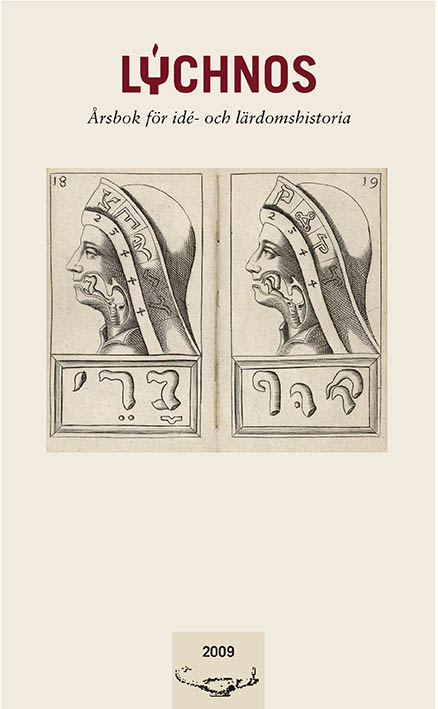En renässansaristoteliker om den mänskliga frihetens gränser
Simone Porzios ”An homo bonus vel malus volens fiat”
Abstract
During the Renaissance, philosophical discussions about human action were mainly centred on problems dealing with the reconciliation of human free will with divine foreknowledge and astral determination. Many humanists and scholastic philosophers reacted firmly against fatalistic notions that subjugated human life to the stars, as well as tried to clarify the compatibility between the divine government of the world and human free will. The aim of this article is to discuss the views of the Neapolitan philosopher Simone Porzio (1496–1554) on human action and the voluntariness of our ethical dispositions as they are presented in his treatise An homo bonus vel malus volens fiat (1551). Porzio has been regarded as one of the strongest champions of Renaissance Aristotelianism. He was an original and non-conformist scholar, who reacted firmly against the scholastic method and the arid treatises it tended to provide. His most famous work is De mente humana (1551), in which he deals with the interpretation of Aristotle’s account of the intellect and, following Alexander of Aphrodisias, concludes that the soul is the individual and corruptible form of the human body. An homo bonus vel malus volens fiat is an investigation of whether the formation of a virtuous or vicious habit is due to our freedom of choice. The treatise is divided into fourteen chapters and begins with a doxographical survey where the Aristotelian position is opposed to the doctrines of the Stoics and the Platonists. What these latter positions have in common, according to Porzio, is that they both deny the complex nature of the human being, which he forcefully depicts as inescapably composed of both rationality and materiality. His analysis of the limits of human freedom touches upon Renaissance concepts of man and his place in the universe, as well as combines a distinctive approach to Aristotle’s teaching with an heterodox attitude towards divine grace.
Downloads
Publicerad
Nummer
Sektion
Licens
This work is licensed under a Creative Commons Attribution 4.0 International License. The copyright for the work published in Lychnos remains with the authors.


